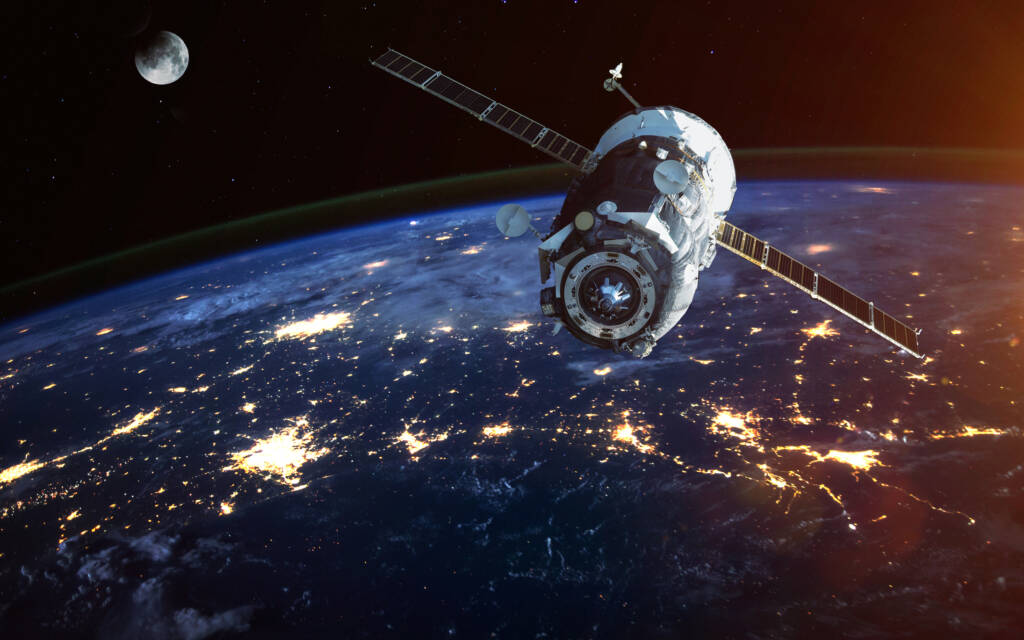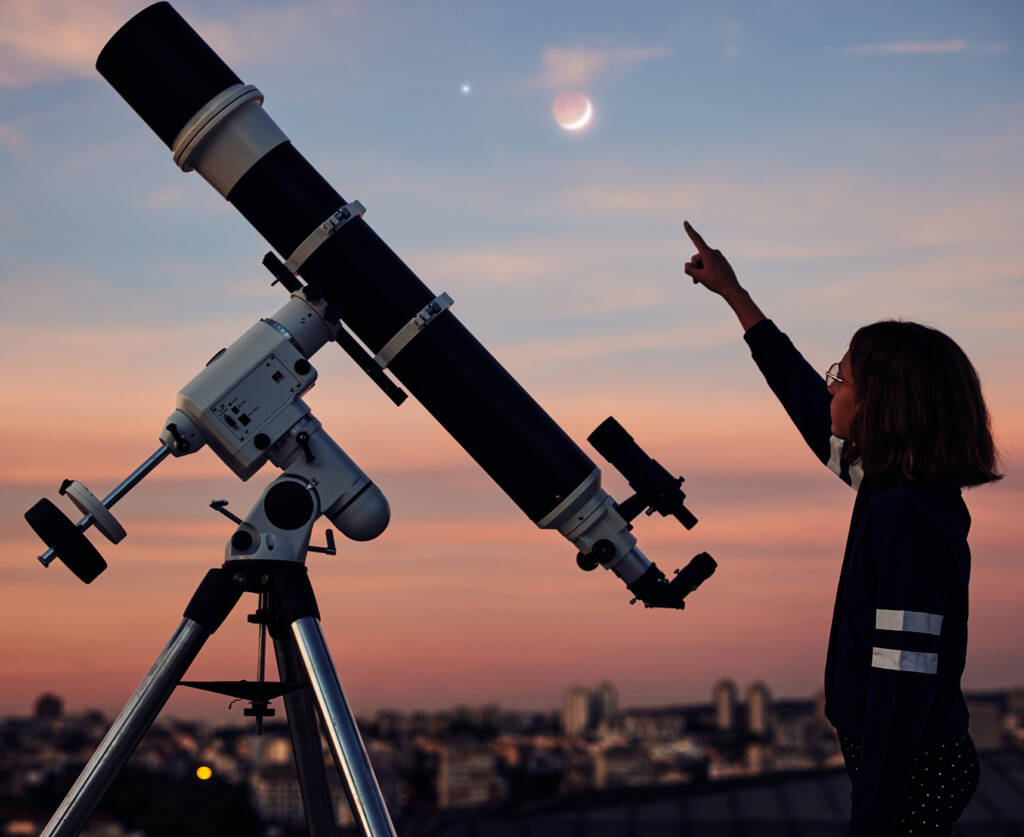
Aeronautics and Space Travel

This course introduces students to the history and near future of space travel. Students will explore the possibilities of moon bases, Mars colonies, and visiting the outer planets in our solar system and their moons. Students will also discuss important ethical and legal issues around space exploration, such as asteroid mining and war in space. The course gives an expansive view of the technologies, science, and theories that will make far-fetched dreams into realities during the student’s lifetime.
Major Topics and Concepts
In this course, students will
- Define key terms related to space travel and astronomy.
- Describe key technologies that have contributed to the development of space travel from the early 1900s to the present.
- Outline the history of space travel and exploration by various countries and companies.
- Analyze the technologies, spacecraft, satellites, and other systems that make space travel possible.
- Evaluate concepts and proposals of pursuing space travel, extracting resources, and setting up colonies on the moon, Mars, and other locations in the solar system.
- Discuss the challenges and difficulties presented in space travel as well as the existing and proposed solutions to these problems.
- Identify the risks of space as an arena for conflict.
- Determine the feasibility of space travel within our solar system and to other stars.
Course Materials
All of the required articles we will read in class will be available online.
Other Office Supplies That May Be Helpful
- A notebook or folder to store paper copies of texts that you print out
- Pen and pencil
- Highlighter
- Printer and printer paper
Software
- Adobe Photoshop CC (preferably the latest version) or simular software.
- Basic Office suite of software (a word processor). If you do not have Microsoft Office on your computer, you can either download Open Office (a free suite of Office software) or use Google Docs.
- A web browser. Several options are free online, including Google Chrome, Firefox, or Safari.
- A functional email address that you check every day to maintain in contact with your instructor.
Technical skills required:
- Download and upload files
- Download and install software
- Use email with attachments
- Create, save, and submit files in commonly used word processing program formats
- Copy and paste
- Work in multiple browser windows and tabs simultaneously
Competencies
The History and Future of Space Travel
Students will demonstrate an understanding of the history and future of space travel by analyzing the impact of past politics on future space travel innovation, describing solutions to past space travel challenges, and explaining future possibilities for space travel.
The Value of Space Missions
Students will demonstrate an understanding of the value of space missions by explaining the value of competition between space programs around the world, evaluating the benefits of Apollo on space travel, and describing the impact of failed and successful space missions on space travel.
The International Space Station and Satellites
Students will demonstrate an understanding of the international space station and satellites by evaluating the role of international politics on the international space station, describing life on the international space station and explaining the technological advancements made by satellites.
The Base of the Moon
Students will demonstrate an understanding of a base on the moon by analyzing the geographic features of the moon and evaluating political and commercial advantages of building a base on the moon.
Life on Mars
Students will demonstrate an understanding of life on Mars by analyzing historical evidence of Mars’s ability to sustain life, evaluating physical and physiological requirements for colonizing Mars, and describing predictions on the colonization of Mars.
Asteroid Mining
Students will demonstrate an understanding of asteroid mining by explaining the formation and types of asteroids, describing benefits to asteroid mining, and evaluating challenges presented in asteroid mining.
Solar System Exploration
Students will demonstrate an understanding of solar system exploration by explaining exploration opportunities within the solar system, describing limitations on travel within the solar system, and explaining the importance of water in space travel.
War in Space
Students will demonstrate an understanding of war in space by explaining the impact of the outer space treaty, describing the efforts to build capabilities for waging war in outer space, and analyzing the complexities of conflict in space.
Spacecarft Technology
Students will demonstrate an understanding of spacecraft technology by describing the need to address space travel difficulties in spacecraft design, evaluating challenges in utilizing spacecraft technology, and explaining future use of spacecraft technology.
Interstellar Travel
Students will demonstrate an understanding of interstellar travel by evaluating the purpose behind interstellar travel, explaining the role of exoplanets in interstellar travel, and describing theories for interstellar travel.

